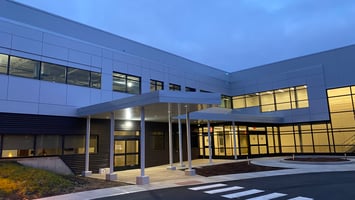Total joint replacement has been a catalyst of growth in the ASC market for several years. It is...
Vascular Access Center to ASC Conversions
A vascular access center is a specialized outpatient medical facility focused on procedures that provide access to patients' blood vessels in the support of other medical treatments. Typical procedures include the placement of central venous catheters, arteriovenous fistulas, and grafts, and they are vital for patients who require long-term intravenous treatments, such as chemotherapy or dialysis.
Vascular access centers are quite often constructed as Office Based Labs or Surgery Suites (OBL's or OBS's) and are operated under the chief doctor's license. In recent years, there has been a move to convert vascular access centers into licensed ambulatory surgery centers (ASC's). Aside from the higher safety standards required of an ASC, a significant impetus for making these conversions is the higher reimbursements provided for these procedures the Centers for Medicare and Medicaid Services (CMS) when conducted in an ASC.
When converting a vascular access center to an ASC, a careful physical plant evaluation must be completed and several changes are likely to be necessary for the facility to comply with both licensure and CMS requirements. Examples may include adding an essential electrical system (EES), the addition of medical gases and vacuum, HVAC changes, incorporating a sprinkler system into the building, adding fire and smoke barriers, and more. These changes can be expensive and disruptive to the ongoing operations of a center, so careful evaluation, design, and planning is essential to assure a successful outcome. In some cases converting an existing vascular access center may not be advised, especially when the facility is older and the cost of construction and the potential disruption to revenue may be greater than the cost of building a new ASC.
An additional benefit of converting a vascular access center to an ASC is the potential to introduce more advanced vascular procedures as well as other surgical specialties into the case mix. When doing so, however, it is important to consider the specific facility needs of those procedures and specialties, which may include larger operating rooms and more recovery stations, different sterile processing requirements, additional storage space for equipment and supplies, and other factors. Certain specialties will lend themselves better than others to the converted facility. For instance, podiatry or pain management may be good bedfellows, while total joint replacement with its significant space requirements may not be a good candidate.
Vascular access centers are crucial to providing safe and reliable vascular access for patients undergoing regular hemodialysis or similar treatments. Converting these centers to ASC's improves the facilities, ensures compliance with state licensing requirements and CMS conditions for coverage, and may provide owners with the ability to expand the scope of services offered. Thorough facility assessment, experienced architectural and engineering design, and carefully executed construction are essential to the success of these conversions. Hardaway|Sziabowski has assisted clients in the conversion of numerous vascular access centers. Please contact us if we can provide you with assistance in the evaluation or conversion of your facility.



